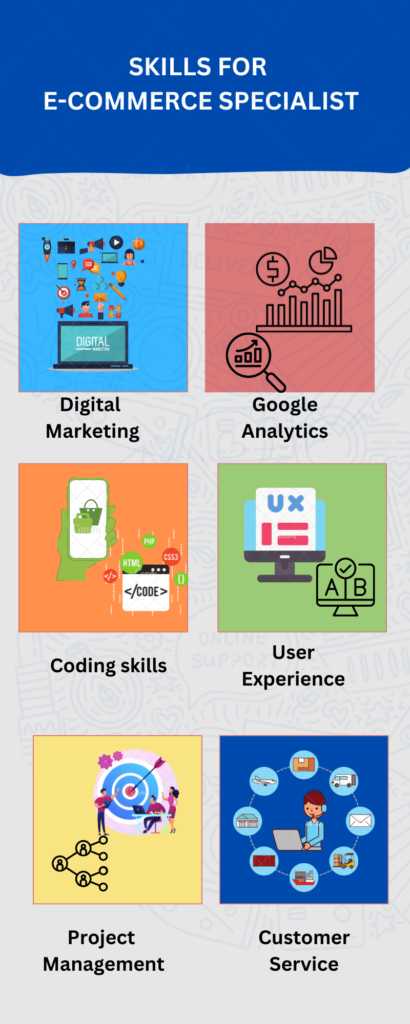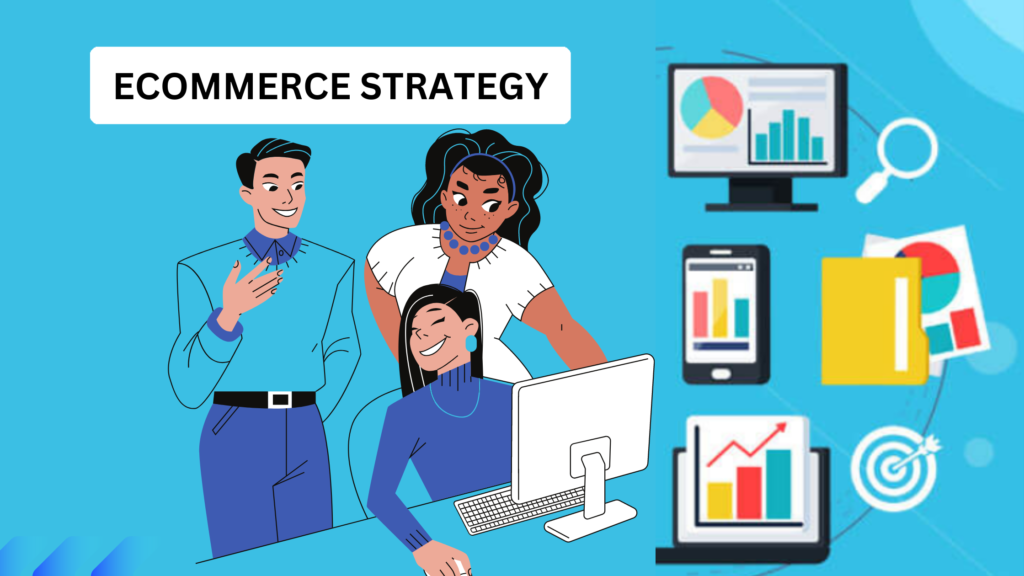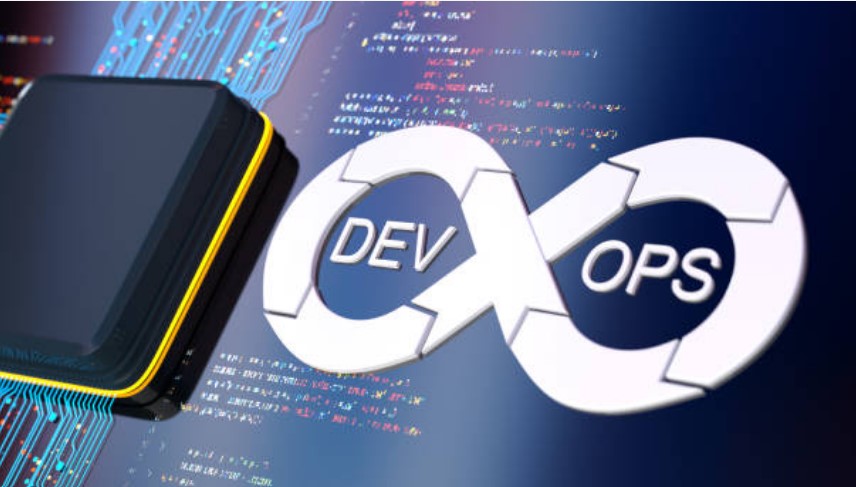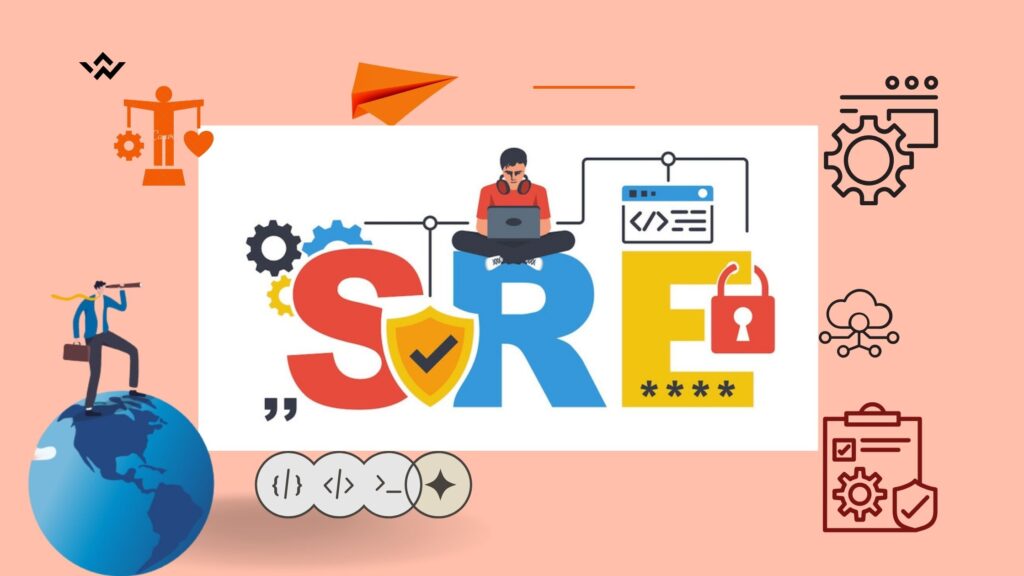Introduction
In the ever-evolving digital age, Ecommerce Specialist play a critical role in the global economy, driving the success of businesses across industries. This article will guide you through the education, skills, and experiences required to build a successful career as an eCommerce specialist.
- Academics for Ecommerce Specialist
- Essential Skills for an Ecommerce Specialist
- Gaining Experience as an Ecommerce Specialist
- Virtual Networking Platforms: Navigating Online Communities and Forums
- The Significance of Ecommerce Specialist Certifications
- Evolving with Emerging Trends
- Conclusion
- Frequently Asked Questions
Academics for Ecommerce Specialist

Becoming an Ecommerce Specialist often requires a blend of formal education and practical experience. While requirements can vary significantly depending on the organization and the specific role, the following offers a general idea of the educational pathways that can lead to a career in this field.
Bachelor’s Degree: Many Ecommerce Specialists have a degree in a related field. The most common areas of study include Business, Marketing, Information Technology, or Computer Science. These disciplines provide a solid foundation in the principles of business and technology, both of which are crucial in eCommerce.
Courses in these programs may include marketing principles, statistics, business strategy, consumer behaviour, web development, database management, and information systems. This knowledge helps in understanding how businesses operate, how to analyze data, how to understand customer needs, and how to manage technical aspects of Ecommerce.
Specialized eCommerce or Digital Marketing Programs: As Ecommerce has become more prevalent, many institutions now offer programs specifically focused on Ecommerce or digital marketing. These programs delve deeper into topics like search engine optimization (SEO), digital advertising, social media marketing, content management, and web analytics.
Online Courses and Certifications: In addition to, or even instead of, traditional degree programs, there are a plethora of online courses that can provide the necessary skills for an Ecommerce career. Websites like Coursera, Udemy, and edX offer courses in everything from digital marketing to data analysis to web development.
Additionally, certifications from Google, Facebook, Amazon, and other platforms can demonstrate expertise in specific areas like Google Analytics, Google Ads, Facebook Advertising, or Amazon Seller Central.
Continuing Education: Because the world of Ecommerce is continually evolving, ongoing education is crucial. This could include attending workshops, webinars, or industry conferences; staying updated with industry blogs or publications; or pursuing advanced certifications or degrees.
It’s important to remember that while formal education can provide a strong foundation, practical experience is also highly valuable in the Ecommerce field. Many employers seek hands-on experience managing Ecommerce platforms, executing digital marketing campaigns, or analyzing web data. This experience can often be gained through internships, part-time jobs, or even managing your online store.
By blending formal education, practical experience, and a commitment to ongoing learning, you can equip yourself with the necessary skills to build a successful career as an Ecommerce Specialist.
Essential Skills for an Ecommerce Specialist
The role of an Ecommerce Specialist can be diverse and multifaceted, and so is the skill set required for success in this position. Here are some essential skills you’ll need:

Skills for an Ecommerce Specialist
1. Digital Marketing: This is a key component of Ecommerce. Knowledge about SEO, SEM, content marketing, email marketing, social media marketing, and PPC advertising is crucial. These tools help drive traffic to your eCommerce site and convert that traffic into sales.
2. Analytics: In Ecommerce, making data-driven decisions is paramount. This requires a solid understanding of data analysis and interpretation. You should be familiar with tools like Google Analytics, which allow you to track and analyze website traffic, user behavior, and other key metrics.
3. Technical Skills: While you don’t need to be a web developer, having some technical knowledge will be beneficial. A basic understanding of HTML, CSS, and JavaScript, along with experience with Ecommerce platforms like Shopify, WooCommerce, Magento, or Amazon can be highly advantageous. Understanding how APIs work can also be helpful when integrating various software.
4. User Experience (UX) & Conversion Rate Optimization: An understanding of what creates a good user experience is essential to increase the conversion rate. This includes designing intuitive navigation, creating compelling calls-to-action, and ensuring your site is mobile-friendly. Knowledge of A/B testing and conversion rate optimization (CRO) strategies is also valuable.
5. Project Management: An Ecommerce specialist often oversees various projects simultaneously, so good project management skills are essential. This includes being able to set goals, manage timelines, coordinate with different teams, and track project progress.
6. Customer Service: Understanding how to interact with customers, handle their issues and feedback is important. Good customer service can lead to increased customer loyalty and positive word-of-mouth for your business.
7. Communication: Strong written and verbal communication skills are vital in any role, and Ecommerce is no exception. You’ll likely need to collaborate with different teams, write product descriptions, create marketing content, and potentially communicate with customers.
8. Industry Knowledge: An effective Ecommerce Specialist stays up to date with the latest industry trends and best practices. This includes understanding changes in consumer behaviour, advancements in technology, and shifts in the competitive landscape.
9. Creativity: Whether it’s creating engaging content, designing promotional campaigns, or solving problems, creativity is a valuable skill in the world of Ecommerce. Remember, these skills can be developed over time and through various experiences, including formal education, online courses, and on-the-job experiences.
Gaining Experience as an Ecommerce Specialist

Gaining experience is a critical part of becoming a seasoned Ecommerce Specialist. The path to becoming proficient in this role can involve several routes:
1. Internships: Internships offer an excellent opportunity to learn about Ecommerce from a practical perspective. Many companies, from startups to established firms, offer internships in areas like digital marketing, web analytics, and Ecommerce strategy. These roles can provide you with hands-on experience and a chance to apply the concepts you’ve learned in a real-world setting.
2. Entry-Level Positions: Starting with an entry-level position in an Ecommerce-related role, such as a digital marketing assistant or a junior web analyst, can be a great way to begin your career. These roles can help you understand the dynamics of Ecommerce operations and give you a sense of how various teams work together to drive online sales.
3. Freelance Projects: Taking on freelance projects can also be a viable way to gain experience. This could involve managing PPC campaigns, creating content for an online store, or even providing consulting services to businesses looking to enhance their Ecommerce presence.
4. Start Your Own Ecommerce Business: While this may seem like a daunting task, starting a small Ecommerce business can provide invaluable experience. It doesn’t have to be a massive operation; even launching a small store on a platform like Etsy or eBay can help you understand the ins and outs of running an online business, from managing product listings to handling customer service inquiries.
5. Online Courses and Certifications: Completing online courses or certifications in Ecommerce or digital marketing can not only equip you with valuable skills but also provide practical projects and case studies that can serve as experience. Many of these courses are designed to be hands-on and can give you the opportunity to work on real-world problems.
6. Volunteering: Non-profit organizations often need help managing their online presence. Offering your skills as a volunteer can provide a chance to gain practical experience, contribute to a meaningful cause, and possibly even secure a reference.
7. Industry Networking: Joining industry networking groups or attending Ecommerce events, webinars, or forums can help you connect with other professionals in the field, learn from their experiences, and possibly open up opportunities for collaborative projects or mentorship.
Remember, there’s no one-size-fits-all path to becoming a seasoned Ecommerce Specialist. The key is to continually seek out opportunities to learn, whether that’s through formal roles, self-guided projects, or ongoing education. Each experience you gain takes you one step closer to becoming a proficient Ecommerce Specialist.
Virtual Networking Platforms: Navigating Online Communities and Forums

Building a strong professional network can open doors to new opportunities, mentorships, and valuable insights into the Ecommerce field. Here’s a strategy to help you start:
1. Identify Your Networking Goals: The first step is to identify what you hope to achieve through networking. This could be learning more about the Ecommerce industry, finding potential job opportunities, or seeking mentorship from experienced professionals.
2. Start with Your Existing Connections: Your current connections can be a great starting point. These could be classmates, professors, colleagues, or even family and friends. Let them know about your interest in Ecommerce and ask if they know anyone in the field who they could introduce you to.
3. Attend Industry Events: Trade shows, conferences, and seminars are great places to meet professionals in the Ecommerce industry. These events are often filled with potential mentors, employers, and peers who share your interests. Don’t forget to bring business cards and be prepared to introduce yourself.
4. Join Online Forums and Social Media Groups: Sites like LinkedIn, Reddit, and Quora have groups dedicated to Ecommerce where professionals share insights, ask questions, and discuss industry trends. Participating in these groups can help you connect with like-minded individuals and industry experts.
5. Leverage LinkedIn: LinkedIn is an excellent platform for professional networking. Make sure your profile is updated and reflects your interest in Ecommerce. Connect with alumni from your school who are working in Ecommerce, join LinkedIn groups related to the field, and engage with posts from industry leaders.
6. Seek Mentorship: If you find someone whose work you admire, consider reaching out to them for advice or mentorship. Be respectful of their time and make it clear what you hope to learn from them.
7. Follow Industry Blogs and Podcasts: Following industry-specific blogs and podcasts can keep you up-to-date on trends and provide conversation topics for networking. You can even reach out to the authors or hosts to discuss their work.
8. Volunteer or Join Professional Organizations: Joining a professional organization, like the Ecommerce Association, can provide networking opportunities. Volunteering for events or committees within these organizations can help you build stronger relationships.
9. Follow-Up: Networking isn’t a one-time event. Make sure to follow up after meetings and conversations. Send a thank you note expressing your appreciation for the person’s time and insights, and keep the relationship active by periodically checking in.
Remember, networking is about building authentic, mutually beneficial relationships. By showing genuine interest in others and offering help when you can, you’ll build a strong network that can support your journey to becoming an Ecommerce Specialist.
The Significance of Ecommerce Specialist Certifications

Online platforms to learn Ecommerce.
Here are some certifications websites that should be pursued by someone who is interested in becoming an Ecommerce Specialist:
- CIW ECommerce Specialist: This certification is offered by the Computing Technology Industry Association (CompTIA) and covers the fundamentals of ecommerce, including website design, marketing, and security.

CIW ECommerce Specialist certification logo
- Google Digital Marketing & Ecommerce: This certification is offered by Google and covers the basics of digital marketing, including search engine optimization (SEO), pay-per-click (PPC) advertising, and social media marketing.

Google Digital Marketing & Ecommerce certification logo
- HubSpot ECommerce Marketing: This certification is offered by HubSpot and covers the fundamentals of ecommerce marketing, including inbound marketing, content marketing, and email marketing.
- Shopify Certified Associate: This certification is offered by Shopify and covers the basics of setting up and managing an online store on the Shopify platform.

Shopify Certified Associate certification logo
- WooCommerce Certified Associate: This certification is offered by WooCommerce and covers the basics of setting up and managing an online store on the WooCommerce platform.

WooCommerce Certified Associate certification logo
These are just a few of the many Ecommerce certifications that are available. The best certification for you will depend on your specific interests and goals.
Evolving with Emerging Trends

Here are some tips on how to keep up with trends in Ecommerce in order to be a notch above equivalent Ecommerce Specialists:
- Read industry publications and blogs: This is a great way to stay up to date on the latest trends in ecommerce. Some of the most popular industry publications include:
- EcommerceBytes
- Internet Retailer
- Shopify Plus
- BigCommerce
- WooCommerce
- Follow thought leaders on social media: There are many thought leaders in the Ecommerce space who share their insights on social media. Some of the most popular thought leaders include:
- Neil Patel
- Gary Vaynerchuk
- Chris Do
- Pat Flynn
- Sujan Patel
- Attend industry events: There are many industry events that are held throughout the year that focus on Ecommerce. Attending these events is a great way to learn from other Ecommerce professionals and network with people in the industry.
- Use Ecommerce analytics tools: There are many ecommerce analytics tools that can help you track your website traffic, sales, and other metrics. Using these tools can help you identify trends and make informed decisions about your Ecommerce business.
- Experiment with new technologies: The Ecommerce industry is constantly evolving, so it’s important to experiment with new technologies. This could involve testing new marketing strategies, using new checkout tools, or implementing new features on your website.
- Be creative: The best Ecommerce Specialists are creative and innovative. They’re always looking for new ways to improve their businesses and stay ahead of the competition.
- Set aside time each week to research new trends: This could involve reading industry publications, attending webinars, or following thought leaders on social media.
- Become a member of Ecommerce industry organizations: This is a great way to network with other Ecommerce professionals and learn about the latest trends.
- Contribute to Ecommerce forums and communities: This is a great way to share your knowledge and expertise with others and to learn from others.
- Don’t be afraid to experiment. The best way to learn about new trends is to try them out for yourself.
By following these tips, you can stay up to date on the latest trends in ecommerce and be a notch above the equivalent Ecommerce Specialist.
Here is the link for other career paths https://futurereadytools.com/category/careers/
Conclusion
A career as an eCommerce specialist is both challenging and rewarding, offering myriad opportunities in the digital economy. The path involves developing a diverse skill set, gaining experience, networking, achieving certifications, and staying informed about industry trends. As more businesses transition online, the demand for eCommerce specialists continues to grow, making it a promising career choice.
Frequently Asked Questions
1. Q: What does an Ecommerce Specialist do?
A: An Ecommerce specialist is responsible for managing and overseeing the online sales of a business. This includes handling website analytics, maintaining and updating the Ecommerce platform, generating sales reports, improving user experience, and implementing digital marketing strategies to drive web traffic and sales.
2. Q: What skills does an Ecommerce specialist need?
A: An Ecommerce specialist needs a range of skills including proficiency in Ecommerce platforms, understanding of SEO principles, digital marketing, data analysis, and customer relationship management. Good problem-solving skills, strong communication skills, and a customer-centric mindset are also essential.
3. Q: What are the educational requirements to become an Ecommerce specialist?
A: A bachelor’s degree in marketing, Business, IT, or related field is often required. However, relevant experience in Ecommerce, digital marketing, or similar fields can also be considered. Certifications in Ecommerce or digital marketing are also advantageous.
4. Q: What kind of businesses hire Ecommerce Specialists?
A: Ecommerce specialists are typically hired by any business that sells goods or services online. This includes retailers, wholesalers, manufacturers, as well as service-oriented companies.
5. Q: How can an Ecommerce Specialist help grow my business?
A: An Ecommerce Specialist can help grow your business by optimizing your online store for search engines, improving user experience, conducting market research, and implementing effective digital marketing strategies to drive traffic and increase sales.
6. Q: What is the average salary for an Ecommerce Specialist?
A: Salaries vary based on location, years of experience, the size of the company, and other factors.
7. Q: Is experience necessary to become an Ecommerce Specialist?
A: While many entry-level positions don’t require prior experience, having hands-on experience with Ecommerce platforms, digital marketing, or SEO can give you a competitive edge.
8. Q: What are the future prospects for an Ecommerce Specialist?
A: The field of Ecommerce is growing rapidly, driven by changes in consumer behaviour and advancements in technology. As more businesses shift online, the demand for skilled Ecommerce specialists is expected to increase.
9. Q: Can I become an Ecommerce Specialist if I have no technical background?
A: Yes, while a technical background can be advantageous, it’s not always necessary. Many aspects of Ecommerce, like content creation, SEO, and digital marketing, require more strategic and analytical skills than technical skills. However, a basic understanding of how Ecommerce platforms work can be helpful.
10. Q: What are the common challenges that an Ecommerce Specialist might face?
A: Some common challenges include staying up to date with changing Ecommerce trends, understanding and adapting to changing consumer behaviour, ensuring a seamless user experience, dealing with competition, and driving traffic and conversions in a cost-effective manner.





